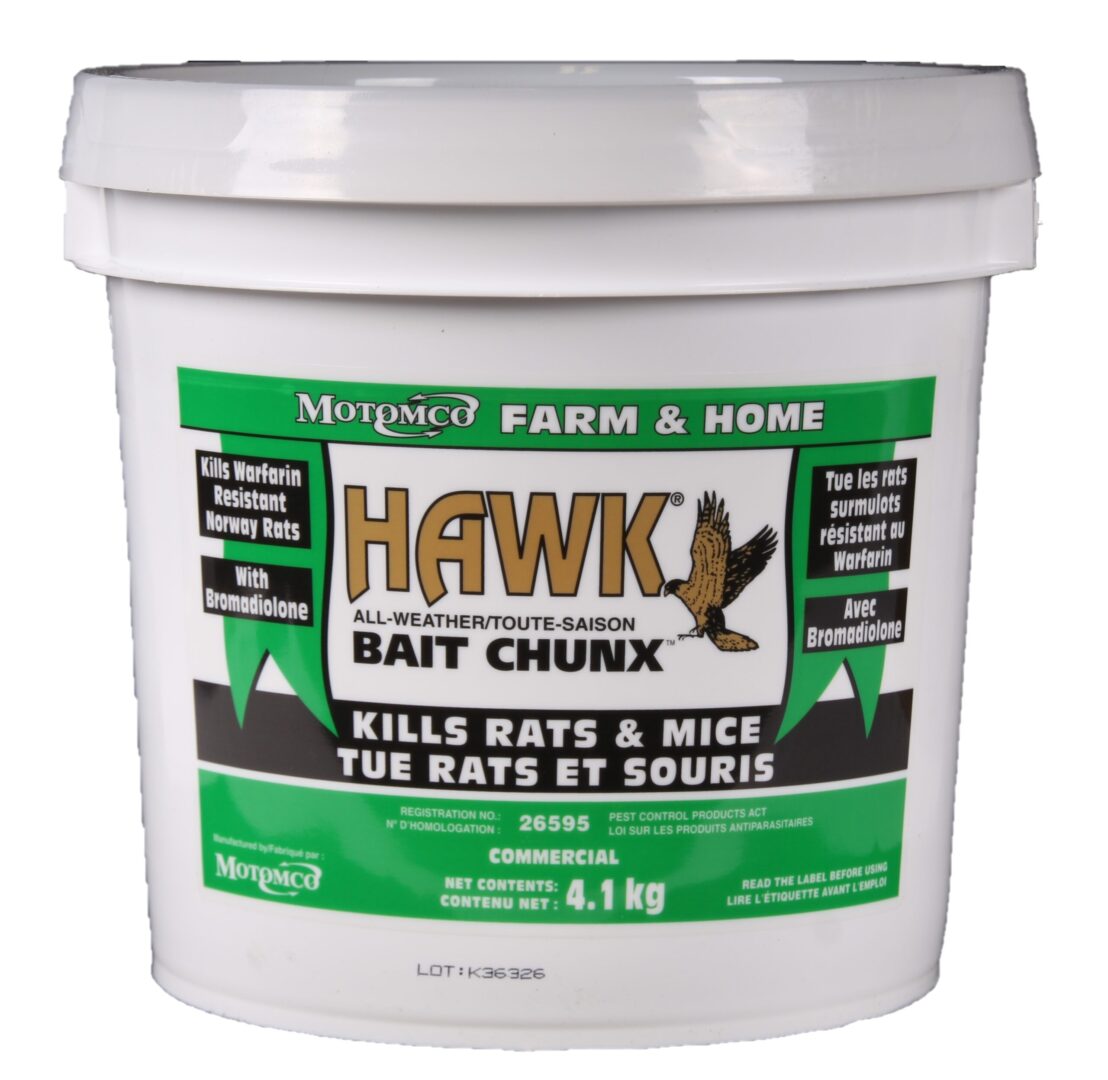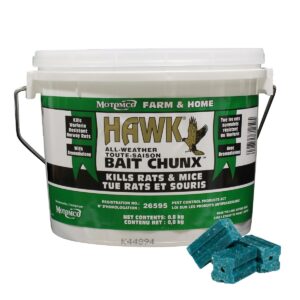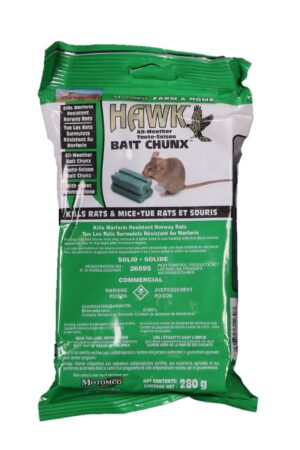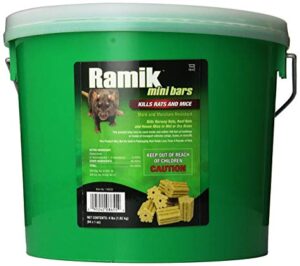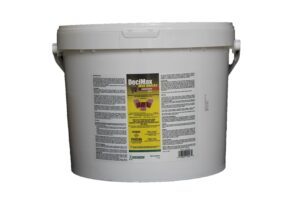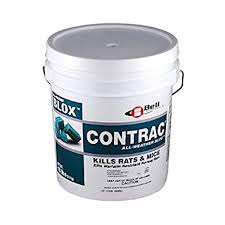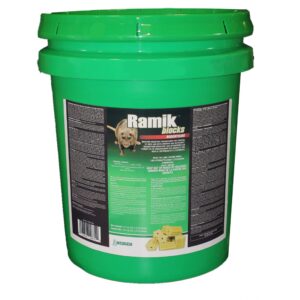REGISTRATION NO.: 26595 PEST CONTROL PRODUCTS ACT
DIRECTIONS FOR USE: Use bait to control the Norway rat (Rattus norvegicus), Roof rat (Rattus rattus), and House mouse (Mus musculus) indoors and outdoors within 15 meters of buildings (dwellings, farm buildings, food service establishments (non-food areas), granary bins (empty), processing plants (feed, food, in non-food areas) and storage areas (non-food)). Rodenticide bait can be placed in tamper-resistant bait stations along the fence line of properties, outside of the 15-metre limit but within 100 meters of buildings, if the station is securely fastened (e.g. nailed down) to the fence or the ground. Food Processing, Food Manufacturing, Food Storage and Food Service Areas: For areas not directly related to food processing: Use only in non-food or non-feed area where feed, food, packaging and handling equipment are never opened or exposed. For areas where feed or food is processed, served, or stored: In meat and food processing plants (processing areas), use only when plant is not in operation. Remove or cover all food, packaging material and utensils before placing bait in baiting stations. Remove all baits and dead rodents before reuse of the plant (processing areas include storage and service). Users should remove clothing immediately if pesticide gets inside. Then wash skin thoroughly and put on clean clothing.
USE LIMITATIONS: Bait MUST be placed either in tamper-resistant bait stations or in locations not accessible to children, pets, livestock or non-target wildlife. DO NOT place bait in areas where there is a possibility of contaminating food or surfaces that come in direct contact with food. Bait stations (tier 3) used for the placement of rodenticide bait indoors, in locations not accessible to pets or livestock must have the following characteristics: (1) be constructed of high-strength material (e.g., metal or injection molded plastic) and resistant to destruction by children: (2) have an entrance designed so that children cannot reach the bait; (3) have internal structure which prevents bait from being shaken loose; (4) have an access panel that fastens securely and locks (e.g., metal screw or padlock); and (5) bear the product name, active ingredient, guarantee, registration number, “WARNING POISON”, and the skull and crossbones symbol. Bait stations (tier 2) used for the placement of rodenticide bait indoors, in locations accessible to pets or livestock must have the following characteristics, in addition to those outlined above for tier 3 bait stations: (1) resistant to destruction by non-target animals; and (2) have an entrance designed so that non-target animals cannot reach bait. Bait applied outdoors and above-ground MUST be placed in bait stations. Bait stations (tier 1) used outdoors, above-ground, in locations accessible to children, pets and non-target wildlife must have the following characteristics, in addition to those outlined above for tier 2 and 3 bait stations: (1) be resistant to destruction or weakening by elements of typical non-catastrophic weather (such as, snow, rain, extremes of temperature and humidity, direct sunshine, etc.).
SELECTION OF TREATMENT AREAS: Determine areas where rats and/or mice will most likely find and consume the bait. Generally, these areas are along walls, by gnawed openings, in or beside burrows, in corners and concealed places, between floors and walls, or in locations where rodents or their signs have been observed. Maintain a steady supply of fresh bait. Remove any spoiled or contaminated bait promptly. APPLICATION DIRECTIONS: RATS: Place 3 to 16 pieces of HAWK ALL-WEATHER BAIT CHUNX at intervals of 4.5 to 9 meters per placement. Maintain an uninterrupted supply of fresh bait for 10 days or until signs of rat activity cease. HOUSE MICE: Place one piece of HAWK ALL-WEATHER BAIT CHUNX at intervals of 2.5 to 3.5 meters per placement. Two pieces may be needed at points of high mouse activity. Maintain an uninterrupted supply of fresh bait for 15 days or until signs of mouse activity cease. RATS/MICE: Replace contaminated or spoiled bait immediately. To prevent re-infestation, eliminate food, water, and harborage as much as possible. If re-infestation does occur, repeat treatment. Where a continuous source of infestation is present, establish permanent bait stations and replenish bait as needed.

